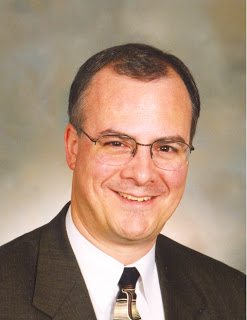
Kurt Witcher gave a fascinating lecture entitled “The Future of Family History – What do we really want?”
Following are my notes:
Curt says he likes to look down the path of what’s needed and upcoming for genealogists. He thinks its the best of times for genealogists, with millions of them being helped by the technology folks.
More people are now engaged in genealogy. More records & stories are available. More opportunities are out there for genealogists.
Curt feels its important to inform, educate and enlighten others – and that everyone out there has a story. The idea that “I am somebody” is popular in education, and beyond. This plays into genealogy and family history.
More people than ever are involved in genealogy. According to Ancestry, “Interest in Family History has doubled since 2008, and will again by 2025.”
21st-ers – those who are doing their genealogy the tech way – and it’s all about the experience. Its got to be fun, with enjoyment and success.
The retiring generation is much more tech-savy than those before. Curt used the MyHeritage ad that I blogged about a while back as an example of the “It’s Got To Be Fun” idea.
Curt feels there are great needs in the genealogy field.
Integrated Library Systems are needed. Libraries hate tech upgrades, as the library usually ends up being the beta tester.
Massive Quantities of Data are coming available.
OCLC WorldCat is wonderful, but it can’t get to all the data in the library’s catalogs.
We need better searches of library catalogs, as well as digitized electronic books.
Big Data & the Handling of Data
We need the family names, with geographic locations and time period, with an analysis of the results on family groupings.
How about if we could could post “My family data” – the whole file – and check against innumerable databases? How about being able to search across other’s files, using facial recognition software, and find folks?
How about software that identifies the car or the mountains in the background?
Greatest needs:
- Intergrated Library Systems
- Searching in complex contexts
- Translating, transmitting, sharing, preserving.
Wuzup With GEDCOM? or ANY OTHER DATA TRANSFER PROTOCAL?
Is it unreasonable to think we might be able to port all of our data from a program?
There’s got to be millions of miles of super-8 film… Things need to be more easily migratable. Hardware/Software systems are needed. There are millions of slides, audio tapes… etc. setting out there with deteriorating data. We need to get things transferring ASAP.
Greatest opportunities
Mobile and wearable – we needs quick convenient ways of capturing the stories. What can be developed that can help us unobtrusively obtain oral history?
- If they are watching us, and we know they are, why can’t we watch us?
- What about 24-7 GPS?
- How about the use of Drones?
How can we apply science and virtual reality. How about holograms of our ancestors? Can I meet my ancestors through science?
What Can DNA Tell US?
Curt feels that if we use the technology, we can learn much about our ancestors. We need more searchable digitized books and records and access to these documents. The more digitizing that’s done, the better.
This was an amazing lecture, and one that got a room full of tech folks thinking… thinking… thinking…